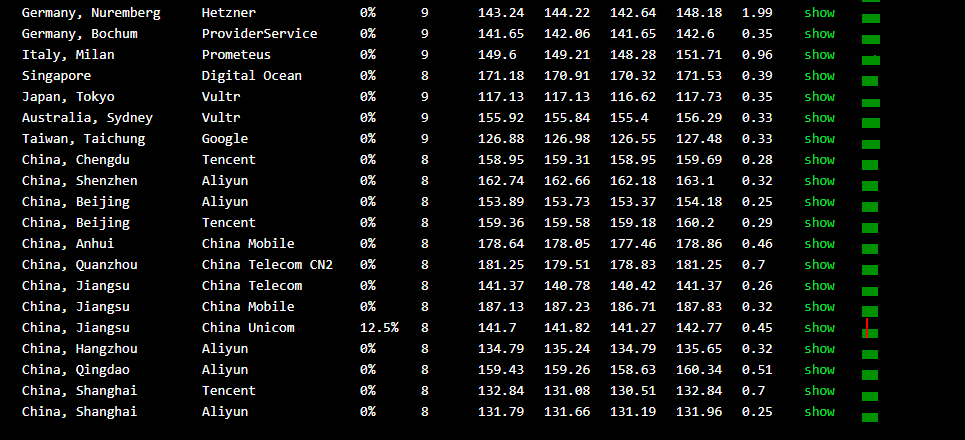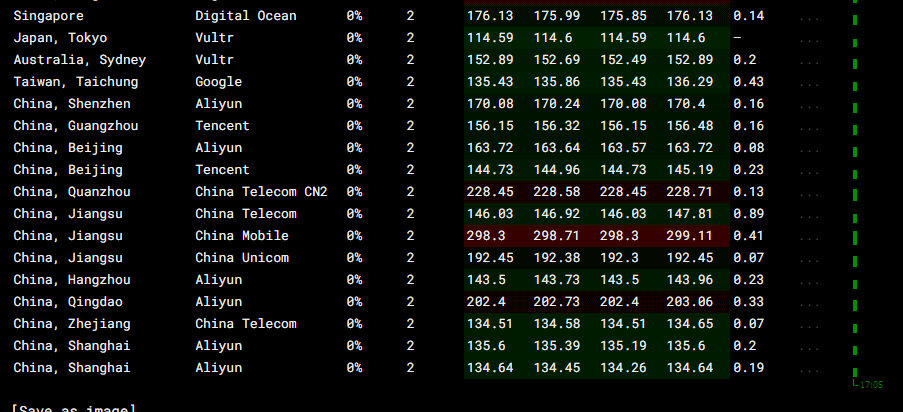文章目录
- Pre
- Code
- 初始化
- 槽计算
- 无需手工调用close方法

Pre
Redis进阶-Redis集群原理剖析及gossip协议初探 集群原理部分 简单的提了下Jest是如何实现Redis Cluster 的 ,这里我们再来梳理一下
Code
import redis.clients.jedis.HostAndPort;
import redis.clients.jedis.JedisCluster;
import redis.clients.jedis.JedisPoolConfig;
import java.io.IOException;
import java.util.HashSet;
import java.util.Set;
public class JedisClusterDemo {
public static void main(String[] args) throws IOException {
JedisPoolConfig config = new JedisPoolConfig();
config.setMaxTotal(20);
config.setMaxIdle(10);
config.setMinIdle(5);
Set<HostAndPort> jedisClusterNode = new HashSet<HostAndPort>();
jedisClusterNode.add(new HostAndPort("192.168.18.131", 8001));
jedisClusterNode.add(new HostAndPort("192.168.18.131", 8004));
jedisClusterNode.add(new HostAndPort("192.168.18.132", 8002));
jedisClusterNode.add(new HostAndPort("192.168.18.132", 8005));
jedisClusterNode.add(new HostAndPort("192.168.18.133", 8003));
jedisClusterNode.add(new HostAndPort("192.168.18.133", 8006));
JedisCluster jedisCluster = null;
try {
//connectionTimeout:指的是连接一个url的连接等待时间
//soTimeout:指的是连接上一个url,获取response的返回等待时间
jedisCluster = new JedisCluster(jedisClusterNode, 6000, 5000, 10, "artisan", config);
System.out.println(jedisCluster.set("clusterArtisan", "artisanValue"));
System.out.println(jedisCluster.get("clusterArtisan"));
} catch (Exception e) {
e.printStackTrace();
} finally {
if (jedisCluster != null)
jedisCluster.close();
}
}
}这里是个简单的demo, 生产中用的话,需要确保jedisCluster是单例的,并且无需手工调用close,不然的话 这个连接池就关闭了,你就无法获取到连接了。
初始化
当 Redis Cluster 的客户端来连接集群时,它也会得到一份集群的槽位配置信息并将其缓存在客户端本地。这样当客户端要查找某个 key 时,可以直接定位到目标节点。
我们来看下jedis的实现
jedisCluster = new JedisCluster(jedisClusterNode, 6000, 5000, 10, "artisan", config);跟下源码
public JedisClusterConnectionHandler(Set<HostAndPort> nodes,
final GenericObjectPoolConfig poolConfig, int connectionTimeout, int soTimeout, String password) {
this.cache = new JedisClusterInfoCache(poolConfig, connectionTimeout, soTimeout, password);
initializeSlotsCache(nodes, poolConfig, password);
}重点看下 initializeSlotsCache
private void initializeSlotsCache(Set<HostAndPort> startNodes, GenericObjectPoolConfig poolConfig, String password) {
for (HostAndPort hostAndPort : startNodes) {
Jedis jedis = new Jedis(hostAndPort.getHost(), hostAndPort.getPort());
if (password != null) {
jedis.auth(password);
}
try {
cache.discoverClusterNodesAndSlots(jedis);
break;
} catch (JedisConnectionException e) {
// try next nodes
} finally {
if (jedis != null) {
jedis.close();
}
}
}
}继续 cache.discoverClusterNodesAndSlots(jedis); cache为 JedisClusterInfoCache 对象。
public void discoverClusterNodesAndSlots(Jedis jedis) {
w.lock();
try {
reset();
List<Object> slots = jedis.clusterSlots();
for (Object slotInfoObj : slots) {
List<Object> slotInfo = (List<Object>) slotInfoObj;
if (slotInfo.size() <= MASTER_NODE_INDEX) {
continue;
}
List<Integer> slotNums = getAssignedSlotArray(slotInfo);
// hostInfos
int size = slotInfo.size();
for (int i = MASTER_NODE_INDEX; i < size; i++) {
List<Object> hostInfos = (List<Object>) slotInfo.get(i);
if (hostInfos.size() <= 0) {
continue;
}
HostAndPort targetNode = generateHostAndPort(hostInfos);
setupNodeIfNotExist(targetNode);
if (i == MASTER_NODE_INDEX) {
assignSlotsToNode(slotNums, targetNode);
}
}
}
} finally {
w.unlock();
}
}槽计算
set --------> run ----> runWithRetries ----> connectionHandler.getConnectionFromSlot(JedisClusterCRC16.getSlot(key))CRC16算法,计算key对应的slot connectionHandler.getConnectionFromSlot(JedisClusterCRC16.getSlot(key))
public static int getSlot(byte[] key) {
int s = -1;
int e = -1;
boolean sFound = false;
for (int i = 0; i < key.length; i++) {
if (key[i] == '{' && !sFound) {
s = i;
sFound = true;
}
if (key[i] == '}' && sFound) {
e = i;
break;
}
}
if (s > -1 && e > -1 && e != s + 1) {
return getCRC16(key, s + 1, e) & (16384 - 1);
}
return getCRC16(key) & (16384 - 1);
}无需手工调用close方法
进入到set方法中看下源码
jedisCluster.set("clusterArtisan", "artisanValue")如下:
@Override
public String set(final String key, final String value) {
return new JedisClusterCommand<String>(connectionHandler, maxAttempts) {
@Override
public String execute(Jedis connection) {
return connection.set(key, value);
}
}.run(key);
}命令模式, 关注 run方法
public T run(String key) {
if (key == null) {
throw new JedisClusterException("No way to dispatch this command to Redis Cluster.");
}
return runWithRetries(SafeEncoder.encode(key), this.maxAttempts, false, false);
}继续 runWithRetries , 截取核心逻辑
private T runWithRetries(byte[] key, int attempts, boolean tryRandomNode, boolean asking) {
Jedis connection = null;
try {
if (asking) {
......
} else {
if (tryRandomNode) {
connection = connectionHandler.getConnection();
} else {
connection = connectionHandler.getConnectionFromSlot(JedisClusterCRC16.getSlot(key));
}
}
return execute(connection);
} finally {
releaseConnection(connection);
}
}关注点
- CRC16算法,计算key对应的slot
connectionHandler.getConnectionFromSlot(JedisClusterCRC16.getSlot(key))
public static int getSlot(byte[] key) {
int s = -1;
int e = -1;
boolean sFound = false;
for (int i = 0; i < key.length; i++) {
if (key[i] == '{' && !sFound) {
s = i;
sFound = true;
}
if (key[i] == '}' && sFound) {
e = i;
break;
}
}
if (s > -1 && e > -1 && e != s + 1) {
return getCRC16(key, s + 1, e) & (16384 - 1);
}
return getCRC16(key) & (16384 - 1);
}- getConnectionFromSlot 通过 JedisPool 获取连接
关注下 JedisCluster是如何获取连接的 getConnectionFromSlot 方法
@Override
public Jedis getConnectionFromSlot(int slot) {
JedisPool connectionPool = cache.getSlotPool(slot);
if (connectionPool != null) {
// It can't guaranteed to get valid connection because of node
// assignment
return connectionPool.getResource();
} else {
renewSlotCache(); //It's abnormal situation for cluster mode, that we have just nothing for slot, try to rediscover state
connectionPool = cache.getSlotPool(slot);
if (connectionPool != null) {
return connectionPool.getResource();
} else {
//no choice, fallback to new connection to random node
return getConnection();
}
}
}本质上还是通过 JedisPool 来获取一个getResource ,跟我们使用Sentinel 啊 单节点获取方法是一样的
- finally 语句中的
releaseConnection(connection);,自动释放连接
看下该方法
private void releaseConnection(Jedis connection) {
if (connection != null) {
connection.close();
}
}说白了,JedisCluster set后会自动释放连接,调用的是jedis 的close方法,所以我们无需手工关闭,否则你这个jedis的连接池就挂逼了…
版权声明:本文内容由互联网用户自发贡献,该文观点仅代表作者本人。本站仅提供信息存储空间服务,不拥有所有权,不承担相关法律责任。如发现本站有涉嫌侵权/违法违规的内容, 请发送邮件至 举报,一经查实,本站将立刻删除。
发布者:全栈程序员栈长,转载请注明出处:https://javaforall.cn/182232.html原文链接:https://javaforall.cn
未经允许不得转载:木盒主机 » redisson连接池配置_redis连接池原理

 木盒主机
木盒主机 搬瓦工VPS最新优惠码 搬瓦工最高优惠6.81%优惠码 promo coupon code
搬瓦工VPS最新优惠码 搬瓦工最高优惠6.81%优惠码 promo coupon code  RackNerd:美国VPS 黑五优惠折扣 1核768RAM $10.28/年+神秘盒子 可随机减免金额
RackNerd:美国VPS 黑五优惠折扣 1核768RAM $10.28/年+神秘盒子 可随机减免金额 10G.BIZ【年终钜惠】美国/日本/韩国/香港独立服务器 秒杀仅24起,站群仅需99,三网CN2GIA五折抢购。CERA洛杉矶云服务器仅2.4起
10G.BIZ【年终钜惠】美国/日本/韩国/香港独立服务器 秒杀仅24起,站群仅需99,三网CN2GIA五折抢购。CERA洛杉矶云服务器仅2.4起 2022年RackNerd 美国VPS促销:4TB月流量11.88美元/年,支持支付宝,老优惠$9.89美元/年
2022年RackNerd 美国VPS促销:4TB月流量11.88美元/年,支持支付宝,老优惠$9.89美元/年